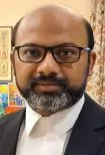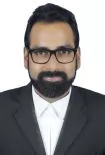"If freedom of speech is taken away, then dumb and silent we may be led, like sheep to the slaughter." George Washington
Unlike fundamental rights, the right to Internet is a 21st century phenomenon. The right to life and freedom to speak one's mind are so intrinsically linked to human existence that it is affirmed by constitution and statutes around the world. The right to Internet is a prerogative recognised through judicial diktat and through a judgement of the Supreme Court (SC) in Anuradha Bhasin vs Union of India case In recognising this right the S C continued with its tradition of recognising the medium of exercising speech as being intrinsic to the right to speech itself, for instance, the freedom of print medium was secured in the Indian Express vs Union of India (1985) 1 SCC 641 case. This declaration assumes greater significance in an age where the scale of Internet usage has exploded exponentially. While anecdotal evidence suggests that the use is primarily for entertainment and social interaction, the trend of people getting their information/news through the web is on the rise. This move has already gained a major foothold in Western democracies such as the US where a recent Pew Research Centre found that 62% percent of Americans get their news from social media platforms.
The second major impact of this rise is that for the first time in human history consumer has become an equal opportunity participant in the business of news. In such a scenario two things emerge. One a certain section of the populace, under the guise of anonymity, will express subversive and maximalist rhetoric. People can either choose to ignore such content or engage in a constructive rebuttal to the extent possible. If such comments do not incite violence, they will retain protection under the right to free speech. The second and undoubtedly invaluable contribution is the internet making vast amounts of knowledge accessible and free of editorial judgements and control. This democratisation of knowledge and data has led to mobilisation of likeminded people towards a common objective and helped in directing their collective voices against entities or individuals perceived to be responsible.
This trend first emerged in 2007 as protests were organised against autocratic regimes in the middle east known as the Arab Spring. Networking sites were used by common people to coordinate their messages and their protests. The danger posed by this technological revolution poses a threat to the prevalent orthodoxies and have unsurprisingly invited measures seeking to curtail the usage of Internet. In India beginning from 2012 internet services have been shut down in various parts of the country such as Assam, Darjeeling, Delhi and Kashmir to maintain the so called "Law and Order" a catch all phrase which rarely means the same thing for the authorities and the disaffected.
The most egregious example of internet shut down has been witnessed in Jammu and Kashmir where after the abrogation of Article 370 internet services were completely suspended. This resulted in prohibiting the residents from not only exercising their right to free speech but also impacted essential services such as healthcare, trade, education and news services. Frowning upon this blanket restriction the Apex court had observed that indefinite suspension is not permissible and restrictions on internet must follow the principle of proportionality under Article 19(2), which speaks about reasonable restrictions on fundamental rights.
Following in the same vein, the Kerala High Court stressed the importance of Internet in case titled as Faheema Shirin vs. State of Kerala [W.P(C).No.19716/2019] as decided on September 19, 2019, wherein the high court o observed that:
"18.....When the Human Rights Council of the United Nations have found that right to access to Internet is a fundamental freedom and a tool to ensure right to education, a rule or instruction which impairs the said right of the students cannot be permitted to stand in the eye of law."
The United Nations General Assembly, on July 14, 2014 adopted a resolution on human rights, especially right to freedom of expression on the Internet. The resolution, among other things, held,
"9. Decides to continue its consideration of the promotion, protection and enjoyment of human rights including the right to freedom of expression on the Internet and other technologies as well as how the Internet can be an important tool for development and for exercising human rights in accordance with this programme of work."
Similarly, In PUCL vs. Union of India, the Supreme court had observed that the Right to freedom of speech and expression is guaranteed under Article 19(1)(a) of the Constitution. Freedom here means the right to express one's opinions freely by word of mouth, writing, printing, picture, or in any other manner. The apex court in recognising and affirming the invaluable nature of Internet has followed the lead of nations across the world
COUNTRIES THAT HAVE RECOGNISED INTERNET ACCESS AS A BASIC HUMAN RIGHT
Estonia: In February 2000, the Estonian Parliament sanctioned the new Telecommunications Act, including Internet Access, as an essential Human Right.
Greece: In 2001, Greece changed its Constitution and embedded Article 5A stating that all persons have the right to participate in the Information Society. Facilitation of access to electronically transmitted information, as well as of the production, exchange and diffusion thereof, constitutes an obligation of the State, always in observance of the guarantees of article 9,9A and 19
European Union: On 25th November 2009, Directive 2009/136/EC of the European Parliament and Council went into power and amended directive 2002/22/EC and had permitted data communication a data rate which is enough to permit functional Internet access.
France: On 10 June 2009, the Constitutional Council said that the law penetrated security by empowering the Haute Autorité pour la Diffusion des Ruvres et la Protection des Droits sur Internet (HADOPI) to track individuals web movement, and then finally declared access to the Internet a fundamental human right.
Finland: In 2010, Communications Market Act, which expressed that widespread help additionally incorporated a utilitarian Internet association and had articulated access to the Internet a fundamental human right via amendment.
Costa Rica: In 2010, The Apex Court of Costa Rica declared that access to Internet a basic human right. Under Article 33 of the Constitution of Costa Rica access to the Internet is a fundamental human right.
Spain: In November 2009, the Spanish citizens were entitled to have access to the Internet because of the Act 2/11 of March 2004 which states that a sustainable economy should affix broadband access to its universal service.
Canada: In 2016, the Canadian Radio Television and Telecommunications Commission declared Internet access a fundamental assistance.
RISE OF BIG TECH
The challenge before our courts and citizens, however, is not restricted to accessing the Internet alone, but also breaking the stranglehold of New Age technology giants such as Google, Twitter and Facebook. The scale and reach which these companies have achieved over the past two decades have been astronomical and it is virtually impossible for people around the world to communicate outside these platforms. While it is undeniable that the service, they provide has been a huge boon for spreading information and views along with trade and education, it has also subjected people to insidious manipulation and widespread surveillance through collection and analysis of their personal data. Under the garb of providing a free service consumer have been turned into products.
These companies have also used their vast wealth and market dominance to quash emerging competitors and subdue innovation. In March of 2020 the European Commission fined Google 1.49 billion euros for violating Anti-Trust rules.
Commissioner Margrethe Vestager the European Commissioner for Competition stated: "Today the Commission has fined Google €1.49 billion for illegal misuse of its dominant position in the market for the brokering of online search adverts. Google has cemented its dominance in online search adverts and shielded itself from competitive pressure by imposing anti-competitive contractual restrictions on third-party websites. This is illegal under EU antitrust rules. The misconduct lasted over 10 years and denied other companies the possibility to compete on the merits and to innovate - and consumers the benefits of competition."
Similarly, there is a growing trend to censor views or arbitrarily tag comments as misleading" or '" "unsubstantiated" to the extent that even the American president had had his tweets labelled as such in the recent past. Social media giants which had hitherto always claimed that they occupied the role of a platform and not a publisher have started policing speech in an obtuse and arbitrary manner. That tech companies can monitor and dictate the kind of views that are deemed to be permissible or acceptable is a trend which should be a cause for worry for all people who value free speech, particularly those who get disbarred from these platforms will inevitably be those who espouse critical and contrarian views of the prevailing orthodoxies.
In a recently released (ARTICLE? REPORT?) published by the Freedom House titled "Freedom on Net 2020: The Pandemics digital Shadow' it was observed that India witnesses more Internet shutdowns than anywhere in the World. Indians in particular, thus face the twin challenge of ensuring both access to Internet as well as an ability to express their views free of corporate control.
To conclude, it can be safely presumed that the pace of legislation has failed to keep with the pace of innovation in the field of technology and communication and it's perhaps wishful thinking to expect the SC to step in every time and save our speech. Nonetheless, we as humans should not give up our right to the internet based on the conjectures of governance and its aftermath.
"The authors are advocates of Karanjawala & Co. practicing before the Hon'ble High Court of Delhi. Mr. Samarjit Pattnaik is a Partner at Karanjawala & Co. Mr. Vikas Gogne is a Principal Associate and Mr. Satyam Chaturvedi is an Associate."
The content of this article is intended to provide a general guide to the subject matter. Specialist advice should be sought about your specific circumstances.



